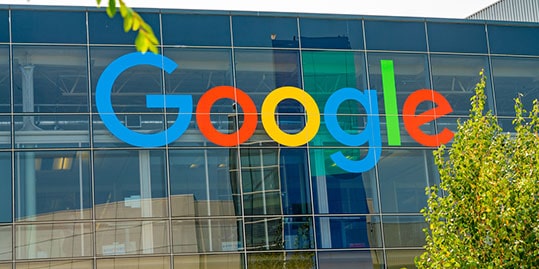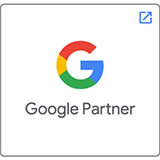Google Ads: Your Optimization Score is Not 100%

Recently, Google began sending out automated emails to their advertisers, letting them know that they do not have a 100% optimization rate in their Google Ads account. While this may be alarming to you, having perfect optimization is actually detrimental to most campaigns. Below are some of the reasons why your score isn’t perfect, and why this actually makes your account far more successful than it would be if you accepted all of Google’s recommendations.
“Reach Additional Customers on Partner Sites”
This is by far the most recommended item for optimization in accounts, and it can cause your spending to massively increase without any solid return on investment. Google is a for profit company, and as such, their base goal is to increase those profits. When they make this recommendation, what they are talking about is Google Search Partners, which are third-party websites that make use of Google’s search technology. These websites are usually barren wastelands, and they only gain traffic from bots and other forced directed users. The only goal that this serves is to artificially expand the number of views that your ads receive, but any clicks that come from those ads almost never experience the conversions to match the amount of money that goes into them.
How we grow and improve the traffic in your account:
- We research additional keyword opportunities that send qualified visitors to your website.
- We make use of remarketing campaigns to bring past visitors back to the website who may be more likely to convert on a second visit.
- And if needed, we broaden our keywords to a larger audience and use negative keywords to limit any searches that we don’t want to appear for.
“Get More Conversions With a Fully Automated Bid Strategy”
In some situations, this can be effective. If we have an account with a massive volume of conversions, we may see an increase in total conversions if we switch to an automated bidding strategy. Without that data, this isn’t likely to occur, and even with it, you may only see a small increase. However, one very important thing happens when you use these bidding strategies – you lose control of your account.
Automated bidding can sometimes bid too low or too high, and it can make your ads not appear for your ideal users and position you very far down in the ad block. You are leaving the adjustments of your account to a machine that does not know your preferences and can’t determine if a conversion is of good quality or not. Whatever it thinks will be effective, the system removes your control and tries to achieve that goal on its own.
These systems also take some time to reach their optimization. We have seen accounts suddenly start to power through their budgets while the system is “learning” how to better optimize its settings. We have seen situations where users were calling competitors purely because the automated system decided not to show ads to those users.
When you are spending money on a campaign, control over how and on whom that money is spent is critical. Using automated bidding is essentially allowing Google to decide how much to pay itself for your clicks, and they don’t offer you any feedback on why it made those bidding decisions.
How we improve the quality of your clicks and conversions:
- We use layers of bid adjustments based on how likely a person is to convert by using actual past user data in your account. If we see that more conversions occur on Fridays for you, we may increase our Friday bids. These same bid adjustments are made for devices used to convert (mobile vs. desktop), worthwhile zip codes in your area, genders, age brackets, topic areas, and even income demographics. The more of these areas that a person falls into, the more likely they are to convert, the higher our bid is for that user, which causes our ad position to increase and gives you a higher chance for them to click on the ad and call you.
- We also review areas of the account where needless spending is occurring on users who are not likely to convert. Perhaps you are advertising on Mondays at 3am, but conversions have never happened after 10pm. This is an example of an area where we may want to turn off our ads in the later hours to conserve that budget for the morning.
“Show Your Ads More Often to People Searching for What Your Business Offers by Adding Keywords”
There are definitely times when adding keywords can improve your account. However, these decisions should be made by you and your advertising manager. Google commonly recommends keywords that look good on paper, but they may cause a massive influx of unqualified users to click on your ads and spend through your budget.
An example of this, taken from one of our accounts, is Google’s suggestion to add “law office.” Google’s system sees this as a related keyword to the campaign, but if you were to add this to your account to improve your optimization score, you would be inviting in people looking for any number of legal practice areas. Your ad views would skyrocket, as would your clicks, but do you really want people looking for a DUI lawyer if your firm handles employment law? Sometimes, even if the keyword looks good for your business, it may actually be too broad and may cause you spending issues.
How we improve your keywords:
- We conduct in-depth comprehensive research for keywords that will actually improve your account.
- We monitor those keywords closely after adding them to make sure they are not attracting unrelated searches.
- We use different keyword types to refine the kind of traffic that comes in.
- We make use of negative keywords to filter out unrelated searches if they do occur.
“Create New Ads and Let the Best Ones Show“
This is actually a great recommendation, but it is something that we already do on a regular basis. Every geographical area is different, and how people in New York interact with ads may be different than how people in Texas interact with ads. We are always testing new ad copy in your campaign to see which ads are clicked on more often, which ads lead to more conversions, and the ads that have a lower cost per lead.
How we improve your marketing ads:
- Once per quarter, we cycle your ad copy. During this time, we review your account to look for ads that are underperforming and we replace those ads with new options that could perform better.
- We set your account to always show the best performing ads more often. This causes our new ads to show slowly over time and if they do outperform the other options, they take a firm placement in your ad views.
- We use different secondary ad formats.
- Call-only ads: These only appear for users using a device that can make phone calls. When someone clicks on the ad, it instead pulls up a dialpad on their phone to call the firm directly, rather than taking them to the website.
- Dynamic ads: These are ads that Google builds out from different predetermined options that we have created. Depending on the person searching, it can dynamically change the ad to better fit the user.
- Short form ads: From our testing, these appear to increase the use of ad extensions, providing more real estate in the ad click that can be interacted with.
“Your Ads Stopped Running on Your Busiest Days. Fixing Your Limited Budget Can Help.”
This can also be useful information, as you can learn how much budget is actually needed for the areas that you are targeting. Law is the most competitive topic area to run Google Ads for, and competitors are constantly adjusting their bids to try and break into the top three ad positions for their keywords. Sometimes these bid increases can make a budget restricted or “used up” very early in the morning. Even if we conduct research early on for what budget you will need in order to be competitive, that budget may be overshadowed by growing competition in your area over time.
How we better manage your budget:
- We keep standard bids slightly lower and boost our bids for the right users (as discussed above in the “Get more conversions with a fully automated bid strategy” section.) This allows us to be more competitive for the people who are more likely to convert, while keeping our bids lower for people who aren’t.
- We review the best days and times of the week to run ads and make bid adjustments for those days or recommend pausing the campaign during ineffective days and times.
- We use strict keywords that bring in searches from people ready to call you, not information seekers or fence sitters.
- We can even setup coding scripts to allow your account to use your designated monthly budget instead of a daily budget (its default setting). That way, if you have a lot of clicks come in on a busy day, your account will not be limited by budget. Instead, your ads will continue to show when you want until your overall monthly budget is met.
“Your Ads Aren’t as Prominent as They Could Be if You Used ___ Extension”
The last item that we will discuss are your ad extensions. These are definitely effective to use in your account, and they provide additional information below your ads that can link to other areas of your website, show your business address, further information about you or your business, or a phone number for people to call you directly from the ad. The problem is that it is usually not a good idea to use all extensions.
If you are a nationwide law firm, you don’t want to use a location extension to show your business address in Colorado unless it’s only for those local visitors. Your location extension will rarely show up and may actually persuade people to go with a competitor that is closer to their home. Google will also sometimes recommend that you use a pricing extension to list your services. But if you don’t work at a fixed amount, this extension is not effective, but can impact your optimization score.
How we improve your ad extensions:
- We only use the extensions that are ideal for your area of business and in your location.
- We cycle your ad extension copy, similar to how we cycle your ad copy. This lets us test out different verbiage that may be more effective for searchers in your area.
- We monitor which extensions your competitors are using and the wording that is used and adjust ours to stay competitive with them.
When in Doubt, Feel Free to Ask!
If everyone was 100% optimized, who determines which ads appear #1 in the ad block and how much money you have to spend to stay in that position for all searches? Google.
If you ever see that your optimization score is below 100%, we are always happy to set up a call to go through Google’s recommendations with you and discuss why they may not be the best choice for your account. Our goal is always to get you higher quality conversions for less cost and to exceed the industry averages so that you get the results that you need. This usually means ignoring Google’s automated practices and doing the manual reviews and work that can be measured to strengthen your account over time and improve your leads.






